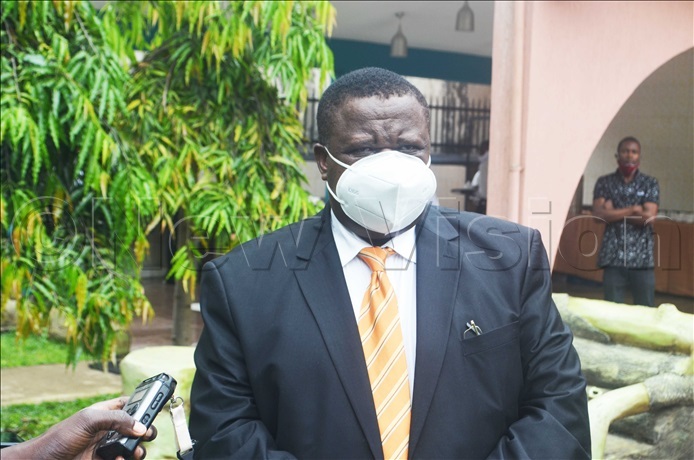Inter-University Council moot for uniform tuition structure
Meanwhile, Rtd. Maj. Gen. Kahinda Otafiire the minister for East African community affairs, appealed for a united East Africa if Universities are to make a break-through in science, research and innovation.
The Inter-University Council of East Africa (IUCEA) remains one of the surviving institutions of the first East African Community (EAC) that was dissolved in 1977.
Though reaffirming its achievements accrued through cooperation and strategic development of higher education in East Africa, the IUCEA is yet to harmonise a uniform tuition structure of universities among member countries.
According to Prof. Mike Kuria the IUCEA acting executive secretary, there is a lack of harmonisation which can be anchored on policy to allow a uniform fees structure.
"The declaration of East African common higher education area needs to be operationalised by policy so that people are not doing things because they like them, but because there is law or policy that requires them to do so," observed Prof. Kuria.
He made the remarks during the annual general meeting that was held on Tuesday at Golf view hotel, Entebbe to mark IUCEA's 50years of existence.
The council of ministers made a decision recently, requiring East African member universities to charge uniform tuition fees from all students regardless of which East African country they hail from.
However, Edward Sebina the commissioner social affairs in Uganda's ministry of East African affairs noted that such a resolution can easily be effected in public universities, even though there are private universities that subscribe to IUCEA.
"The fees structure model is about public universities which are subsidised by the government," noted Sebina.
He added that there are also variabilities in terms of courses offered at a given university.
Meanwhile, Rtd. Maj. Gen. Kahinda Otafiire the minister for East African community affairs, appealed for a united East Africa if Universities are to make a break-through in science, research and innovation.
"Our intellectual contribution is usually exploited by external people who take advantage of the weakness of the African continent. For example, we have failed to develop a Covid-19 vaccine on our own not because we lack scientists, but because we operate as individual states," remarked Minister Otafiire.

He added thus, "if we came together as the African continent, the contribution of member countries could construct a laboratory of such quality and size as those in the Western world, Asia or Chinese, and our scientists would compete in the development of that vaccine."
According to Otafiire, the Covid-19 vaccine which has been developed by scientists from other countries is going to be sold to approximately 1.2 billion people in the world.
He blamed African countries that suppress efforts of collaboration on the conviction of sovereignty saying, African scientists have the brains but governments are not giving them the required tools of innovation.
About IUCEA
In June 1963, the University of East Africa was established out of Makerere College in Uganda, Royal college in Kenya and University college of Dar es Salaam in Tanzania.
In 1970, the University of East Africa was dissolved to pave way for the establishment of autonomous universities.
The stakeholders in higher education in the region agreed to establish the inter-university committee which later progressed to the current Inter-University Council of East Africa.
The council which prides in the 50 years of existence is responsible for the development of higher education for human resource development and research.